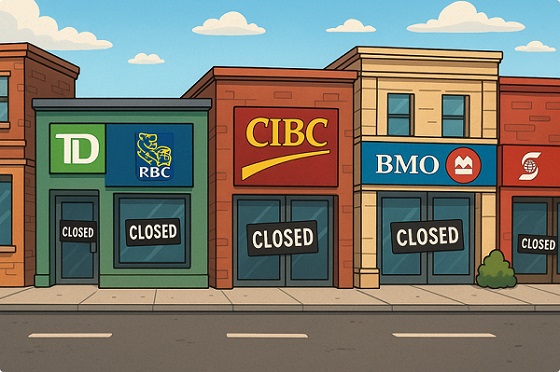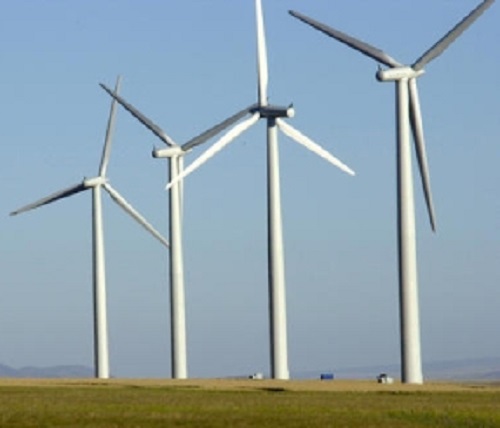Business
Indigenous Broadband – Connecting the North

In our digitally defined world, access to technology is an important factor in achieving a high quality of life for many. The digital divide refers to differences in access to technology experienced by individuals as a result of various socioeconomic and geographical factors. In Canada, a major feature of the digital divide is location, with a major gap existing between the sparsely populated Northern territories and the rest of the country.
The lack of access to reliable Internet in rural areas across Northern Canada can make it extremely difficult for those living in remote communities to remain connected, conduct business, access necessary resources and more. The absence of reliable connectivity for our Northern neighbors has been an ongoing problem since the inception of the Internet, but countless discussions and grants have yet to yield a serious, sustainable solution.
KatloTech Communications Ltd. (KTC) is a Northern-Indigenous owned business based in Yellowknife, NWT committed to solving the broadband issue that has plagued Northern Canada for years. The organization’s mission is to close the digital divide in Northern Canada by providing world-class telecommunication solutions through the use of wireless and fiber optic technologies.
Their Broadband Investment Project in the Northwest Territories, currently in the planning and investment stages, seeks to “build and deploy an indigenous-owned next-generation fiber-optic network infrastructure connecting the Northwest Territories into Global Markets.” The network will have the ability to host services such as Internet, Cloud Services, IP telephone services, cellular and digital TV services and offer wholesale broadband access to providers and resellers.
“People in the North have been waiting for this for years,” says Lyle Fabian, President KatloTech Communications, “finally we decided, if no one else is going to build it, we will!”
The low population density in Northern Canada does not attract the same number of telecommunication providers as southern regions of the country. This has led to a lack of competition between providers in the north, contributing to the creation of a predatory market atmosphere where clients are paying outrageous prices for access to basic services. “Our goal is to innovate the North,” says Fabian, “as soon as you leave major city centers, choice of access is almost non-existent. We want to create competition and give everybody choices.”
Like countless other organizations across the country and the world, COVID-19 has forced KatloTech Communications to reevaluate their plans for 2020. However they remain entirely committed to the cause. KatloTech is currently focused on raising public awareness for their project and furthering discussions with third party organizations interested in bridging the divide and bringing reliable connectivity to the North.
For more information on KatloTech Communications Inc., visit https://katlotech.ca/
For more stories, visit Todayville Calgary.
Banks
Debanking Is Real, And It’s Coming For You

From the Frontier Centre for Public Policy
Marco Navarro-Genie warns that debanking is turning into Ottawa’s weapon of choice to silence dissent, and only the provinces can step in to protect Canadians.
Disagree with the establishment and you risk losing your bank account
What looked like a narrow, post-convoy overreach has morphed into something much broader—and far more disturbing. Debanking isn’t a policy misfire. It’s turning into a systemic method of silencing dissent—not just in Canada, but across the Western world.
Across Canada, the U.S. and the U.K., people are being cut off from basic financial services not because they’ve broken any laws, but because they hold views or support causes the establishment disfavors. When I contacted Eva Chipiuk after RBC quietly shut down her account, she confirmed what others had only whispered: this is happening to a lot of people.
This abusive form of financial blacklisting is deep, deliberate and dangerous. In the U.K., Nigel Farage, leader of Reform UK and no stranger to controversy, was debanked under the fig leaf of financial justification. Internal memos later revealed the real reason: he was deemed a reputational risk. Cue the backlash, and by 2025, the bank was forced into a settlement complete with an apology and compensation. But the message had already been sent.
That message didn’t stay confined to Britain. And let’s not pretend it’s just private institutions playing favourites. Even in Alberta—where one might hope for a little more institutional backbone—Tamara Lich was denied an appointment to open an account at ATB Financial. That’s Alberta’s own Crown bank. If you think provincial ownership protects citizens from political interference, think again.
Fortunately, not every institution has lost its nerve. Bow Valley Credit Union, a smaller but principled operation, has taken a clear stance: it won’t debank Albertans over their political views or affiliations. In an era of bureaucratic cowardice, Bow Valley is acting like a credit union should: protective of its members and refreshingly unapologetic about it.
South of the border, things are shifting. On Aug. 7, 2025, U.S. President Donald Trump signed an executive order titled “Guaranteeing Fair Banking for All Americans.” The order prohibits financial institutions from denying service based on political affiliation, religion or other lawful activity. It also instructs U.S. regulators to scrap the squishy concept of “reputational risk”—the bureaucratic smoke screen used to justify debanking—and mandates a review of past decisions. Cases involving ideological bias must now be referred to the Department of Justice.
This isn’t just paperwork. It’s a blunt declaration: access to banking is a civil right. From now on, in the U.S., politically motivated debanking comes with consequences.
Of course, it’s not perfect. Critics were quick to notice that the order conveniently omits platforms like PayPal and other payment processors—companies that have been quietly normalizing debanking for over a decade. These are the folks who love vague “acceptable use” policies and ideological red lines that shift with the political winds. Their absence from the order raises more than a few eyebrows.
And the same goes for another set of financial gatekeepers hiding in plain sight. Credit card networks like Visa, American Express and Mastercard have become powerful, unaccountable referees, denying service to individuals and organizations labelled “controversial” for reasons that often boil down to politics.
If these players aren’t explicitly reined in, banks might play by the new rules while the rest of the financial ecosystem keeps enforcing ideological conformity by other means.
If access to money is a civil right, then that right must be protected across the entire payments system—not just at your local branch.
While the U.S. is attempting to shield its citizens from ideological discrimination, there is a noticeable silence in Canada. Not a word of concern from the government benches—or the opposition. The political class is united, apparently, in its indifference.
If Ottawa won’t act, provinces must. That makes things especially urgent for Alberta and Saskatchewan. These are the provinces where dissent from Ottawa’s policies is most common—and where citizens are most likely to face politically motivated financial retaliation.
But they’re not powerless. Both provinces boast robust credit union systems. Alberta even owns ATB Financial, a Crown bank originally created to protect Albertans from central Canadian interference. But ownership without political will is just branding.
If Alberta and Saskatchewan are serious about defending civil liberties, they should act now. They can legislate protections that prohibit financial blacklisting based on political affiliation or lawful advocacy. They can require due process before any account is frozen. They can strip “reputational risk” from the rulebooks and make it clear to Ottawa: using banks to punish dissenters won’t fly here.
Because once governments—or corporations doing their bidding—can cut off your access to money for holding the wrong opinion, democracy isn’t just threatened.
It’s already broken.
Marco Navarro-Genie is vice-president of research at the Frontier Centre for Public Policy and co-author, with Barry Cooper, of Canada’s COVID: The Story of a Pandemic Moral Panic (2023).
Business
Carney engaging in Orwellian doublethink with federal budget rhetoric

From the Fraser Institute
By Jake Fuss
In George Orwell’s classic 1984, he describes a dystopian world dominated by “doublethink”—instances whereby people hold two contradictory beliefs simultaneously while accepting them both. In recent comments about the upcoming October federal budget, Prime Minister Carney unfortunately offered a prime example of doublethink in action.
During a press conference, Carney was critical of his predecessor’s mismanagement of federal finances, specifically unsustainable increases in spending year after year, and stated his 2025 budget will instead focus on “both austerity and investments.” This should strike Canadians as an obvious contradiction. Austerity involves lowering government spending while investing refers to the exact opposite.
Such doublethink may make for good political rhetoric, but it only muddies the waters on the actual direction of fiscal policy in Ottawa. The government can either cut overall spending to try to get a handle on federal finances and reduce the role of Ottawa in the economy, or it can increase spending (but call it “investment”) to continue the spending policies of the Trudeau government. It can’t do both. It must pick a lane when it comes to mutually exclusive policies.
Despite the smoke and mirrors on display during his press junket, the prime minister appears poised to be a bigger spender and borrower than Trudeau. Late last year, the Trudeau government indicated it planned to grow program spending from $504.1 billion in 2025/26 to $547.8 billion by 2028/29.
After becoming the Liberal Party leader earlier this year, Carney delivered a party platform that pledged to increase spending to roughly $533.3 billion this year, well above what the Trudeau government planned last fall, and then to $566.4 billion by 2028/29. Following the election, he then announced plans to significantly increase military spending.
While the prime minister has touted a plan to find “ambitious savings” in the operating budget through a so-called “comprehensive expenditure review,” his government is excluding more than half of all federal spending including transfers to individuals such as Old Age Security and transfers to the provinces for health care and other social programs. Even with the savings anticipated following the review, the Carney government will likely not reduce overall spending but rather simply slow the pace of annual spending increases.
Moreover, the Liberal Party platform shows the government expects to borrow $224.8 billion—$93.4 billion more than Trudeau planned to borrow. And that’s before the new military spending. That’s not austerity—even if Prime Minister Carney truly believes it to be.
Actual austerity would require a decrease in year-over-year expenses, smaller deficits than what the Trudeau government planned, and a path back to a true balanced budget in a reasonable timeframe. Instead, Carney will almost certainly hike overall spending each year, raise the deficits compared to his predecessor, and could even fall short of his tepid goal of balancing the operating budget within three years (which would still involve tens of billions more borrowed in a separate capital budget).
While budgets normally provide clarity on a government’s spending, taxing, and borrowing expect more doublethink from the October budget that will tout the government’s austerity measures while increasing spending and borrowing via “investments.”
-

 Censorship Industrial Complex18 hours ago
Censorship Industrial Complex18 hours agoFreedom of speech under threat on university campuses in Canada
-

 Alberta13 hours ago
Alberta13 hours agoOttawa’s destructive federal energy policies and Premier Danielle Smith’s three part solution
-

 Business18 hours ago
Business18 hours agoCarney engaging in Orwellian doublethink with federal budget rhetoric
-

 Alberta18 hours ago
Alberta18 hours agoIs Alberta getting ripped off by Ottawa? The numbers say yes
-

 Energy18 hours ago
Energy18 hours agoCanada’s LNG breakthrough must be just the beginning
-

 Business19 hours ago
Business19 hours agoCourt’s ‘Aboriginal title’ ruling further damages B.C.’s investment climate
-

 Business19 hours ago
Business19 hours agoManitoba Must Act Now To Develop Its Northern Ports
-

 Agriculture12 hours ago
Agriculture12 hours agoIn the USA, Food Trumps Green Energy, Wind And Solar




